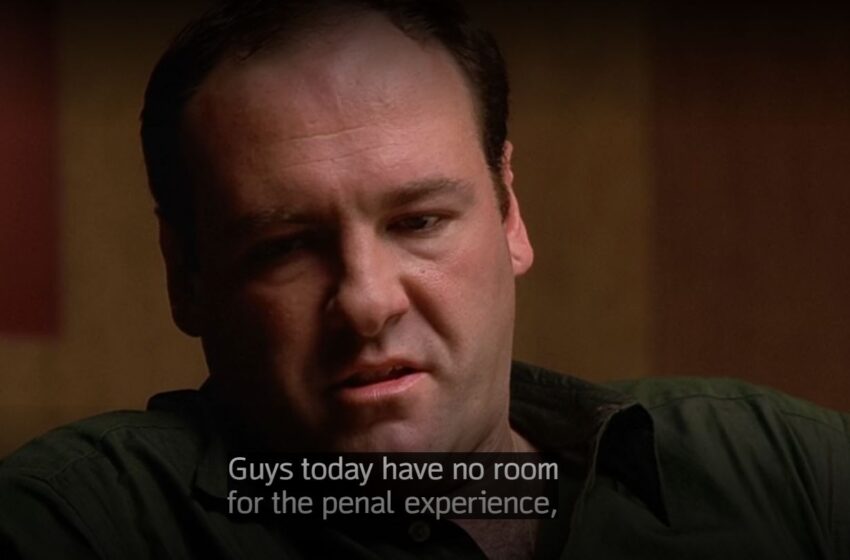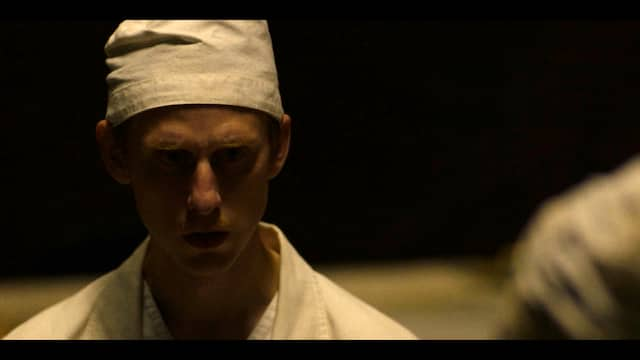
Tony Soprano’s Panic Attacks

Tony Soprano’s panic attacks are an essential component of his character and serve as a vehicle through which “The Sopranos” explores complex psychological terrain. The series delves into the inner workings of a man living in two conflicting worlds—one where he is a loving family man and another where he’s an unapologetically violent mob boss. These panic attacks are not just plot devices but windows into Tony’s subconscious, providing depth and nuance to his character.
The Character of Tony Soprano
Tony is a man stuck between two generations and two sets of expectations: the old-world, traditional values represented by his mother, Livia, and his Uncle Junior; and the modern, more emotionally expressive and transparent world epitomized by his therapy sessions with Dr. Jennifer Melfi. He is also at the intersection of his professional and personal responsibilities, which often conflict and induce an overwhelming amount of stress and guilt.
Psychoanalytic Perspective
In psychoanalytic terms, Tony Soprano could be said to experience a form of cognitive dissonance, the psychological stress experienced by someone who holds two or more contradictory beliefs, values, or perceptions at the same time. In Tony’s case, this is seen in his need to be a good father and husband while leading a life of crime. The mob’s “code of silence” and traditional masculine norms exacerbate his emotional repression, making it difficult for him to reconcile these aspects of his identity.
The therapy sessions with Dr. Melfi give Tony a platform to explore these repressed emotions, an exercise that often triggers additional stress and confusion. The panic attacks can be seen as a symptom of suppressed emotional turmoil seeking an outlet.
Real-World Analogy
In real-world terms, panic attacks are often triggered by acute stress or the anticipation of stress. They are usually a sign of an underlying anxiety disorder but can be situational as well. For Tony, these panic attacks are clearly tied to specific situations or triggers that force him to confront uncomfortable truths about his life. They frequently occur at moments where the discord between his “two families” becomes too much to bear.
The Role of Mother and Family
A critical layer to this analysis would be the Freudian implications related to Tony’s relationship with his mother, Livia. In many psychoanalytic theories, the relationship with the mother is foundational to a person’s psychological development. Tony’s complicated relationship with his manipulative and emotionally abusive mother has left him with a skewed perception of love, loyalty, and duty, contributing to his internal conflict.
The Therapy Sessions
The scenes with Dr. Melfi serve as narrative tools to get into Tony’s subconscious. They offer a contrast to the traditionally macho world of the mafia, allowing for emotional vulnerability. These sessions also provide a forum for Tony to explore his fears, anxieties, and guilt, which he cannot do elsewhere. The therapeutic setting enables us to understand that Tony’s panic attacks are not just signs of “weakness” but are symptomatic of deeper emotional and psychological issues.
Tony Soprano’s panic attacks are a vital part of his character arc, signifying the emotional and psychological price of leading a double life. In a series that defies the norms of both crime dramas and family dramas, these episodes of acute anxiety add layers of complexity to an already multifaceted character. They serve as a unique narrative device that allows the series to explore mental health issues in a nuanced way, challenging the traditional toxic masculinity often associated with mob culture. Thus, Tony’s panic attacks offer an intriguing blend of character-driven storytelling and psychoanalytic theory, making “The Sopranos” not just a groundbreaking television series but a significant work of psychological study.




